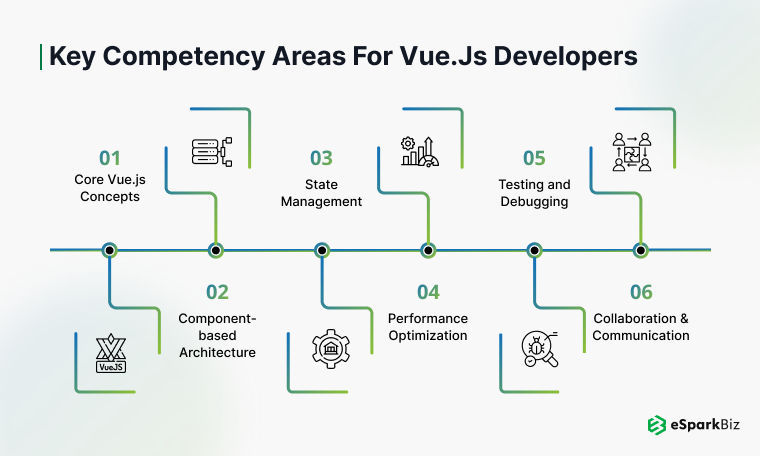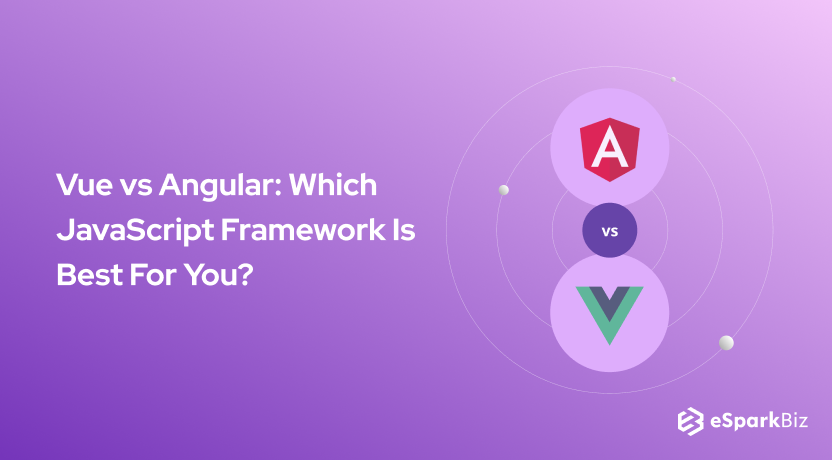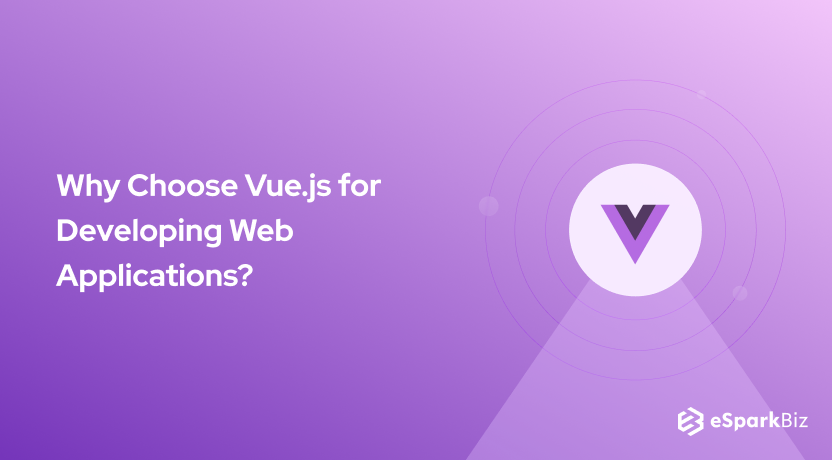It is necessary to have the service of a Vue.js developer to build an application that can work quite well on any platform. The reason it’s one of the best-known Web CMS: core advantages of VueJS is intuitive, easy, user-friendly, and flexible in its approach based on components; it can be used effectively even in Single-page applications and projects involving big and long work over the web.
But when it comes to hiring experts, there are certain skills that you must access in an interview. Technical expertise, problem-solving skills, and knowledge of Vue.js best practices are the primary ones. So, let us explore the top Vuejs Interview Questions and answers for the developers at junior, mid-level, and senior experience levels here.
Key Competency Areas for Vue.js Developers

Core Vue.js Concepts: Understanding of Vue’s structure, reactivity system, and directives.
Component-based Architecture: Ability to use multiple components for ensuring better code usage and modifications as needed.
State Management: Knowledge of Vuex or other state management solutions to manage data across components.
Performance Optimization: Idea on the techniques to use Vue application performance effectively.
Testing and Debugging: Proficiency in working, allowing for the quick catching of bugs or loopholes.
Collaboration and Communication: Information can be shared in a structured manner to avoid delays.
Now that you know the basics, let us explore Vuejs Interview Questions and answers at different levels.
Junior Vue.js Developer Questions
Q1: What is Vue.js, and why would you use it?
Expected Answer:
Vue.js is also termed as a progressive JavaScript framework. Using this, you can build dynamic user interfaces and SPAs as well. It is known for flexibility, simplicity, and ease of integration. It supports the reactivity system and two-way data binding. It makes it ideal for dynamically updating applications.
Key Points to Look For:
Progressive JavaScript Framework: Check the understanding of candidates on Vue.js as a progressive web app framework and how to use it for different levels of projects.
Two-Way Data Binding and Reactivity System: Discuss and see if the candidate can link between components and the data that change with a result for a seamless experience.
Example Follow-Up Questions:
- “In terms of dynamic routing concerning user profiles in a social media app, what shall you do?”
- “Can you tell me about what route guards are and how & why they are used in Vue Router?”
Q2: Explain the differences between v-bind and v-model.
Expected Answer:
v-bind is a directive that provides helpful functionality that enables users to bind a specific piece of data to an HTML attribute, whereby the key attribute is dynamically bound to a piece of data within Vue. V-model is a directive for two-way data binding, which is most commonly used for some form of input elements, such as anything that needs user input to reflect within Vue.
Key Takeaways:
Two Way Data Binding with v-model: v-model allows a two-way data binding, which means any change on the user input field is reflected in Vue’s data in the same field, and vice versa.
Practical Applications: Applicants are expected to justify the applications of v-bind using right applications, like images; where users would anticipate that form to handle images.
Follow-Up Questions for an Example:
- “Point out where v-bind is superior to v-model?”
- “Two-way binding is possible. But what to use for form handling?”
Q3: Explain the Vue.js directives and name some of them.
Expected Answer:
The directives in Vue.js are the special tokens added to the Virtual DOM elements that give reactive capabilities. Some of the most used directives are v-if for rendering, v-for for looping, v-bind for data binding, and v-model, which does two-way data binding.
Definition of Directives: The candidate should be aware of directives and how the reactive data behavior of the component integrates the Document Object Model and Vue’s data with the logical application.
Practical Application: It takes a lot of effort to answer this specific question, wherein the candidate showcases how and when one can use each directive and what benefits it provides to Vue’s reactivity.
Example Follow-Up Questions:
- “Compare v-for with forEach with proper Vue instances.”
- “Share some known challenges in using Vue directives?”
Q4: How do you create a Vue component, and what are the advantages of using components?
Expected Answer:
A Vue component can be created either using a Vue.component function or SFC, which in this case has a.vue file (Vue extension). Vue Component library allow the use of reusable components, modular architecture, and maintainability by separating HTML, CSS, and JavaScript codes in components in Vue.
Key Points to Look For:
Component Creation: Look for a clear explanation of how to create components either globally through Vue.component or locally within the.vue files, to gain more modularity.
Vue Component Structure: Look for an understanding of SFC- Single File Components structure to maintain and keep track of components in a good order.
Example Follow-Up Questions:
- “There are local and global components in Vue. Are they different? Please brief.”
- “How does SFC improve code organization and scalability?”
Q5: What is conditional rendering, and how is it implemented in Vue.js?
Expected Answer:
Conditional rendering allows elements to be displayed when some specific conditions like v-if, v-else-if, and v-else directives are fulfilled. This feature enables dynamic control over what appears in building User Interfaces based on the app’s data state.
Key Points to Look For:
Usage of v-if directive: Verify the understanding of v-if directive as to how elements conditionally work on a true/false evaluation.
Responsive User Interfaces Control: Analyze the understanding of conditional rendering under varied specific conditions.
Example Follow-Up Questions:
- “v-show and v-if: Differentiate with real-life scenarios.”
- “Share examples or ideas on implementing conditional rendering in a web application?”
Mid-Level Vue.js Developer Questions
Q1: What are Vue Mixins, and when should you use them?
Expected Answer:
A Vue Mixin lets you leverage the logic for components which express common functions to be utilized across different components. That is, simply speaking, mixins point out distant realities from their practical implementation as well as eliminate redundantities in the code.
Things to Look Out for Key Points:
Reusability and Modularity: Here, the candidate should highlight how Mixins promote cod modularity through facilitating shared attributes across different components.
Practical Use Cases: Movement of Mixins usage, such as providing validation methods, useful component’s lifecycle events, or general-purpose functions
Example Follow-Up Questions:
- “Vue 3’s Composition API influences Mixins. Explain please.”
- “Mixins in huge applications are normally not recommended. Describe a few specific disadvantages.”
Q2: Discuss how Vue Router works and the importance of this in single-page applications.
Expected Answer:
The navigational components use Vue Router in SPA. It renders different areas of the application instantaneously without reloading the entire page, an obvious fit for Single-page Applications.
Key Points to Watch Out for:
Navigation Without Page Reload: The candidate should remember that Vue Router also features this area as one of the key requirements of Single-page Applications.
Route: Check the understanding of parameters, definition, and usage.
Example follow-up questions:
- “Maintaining user profiles in Social Networking applications and websites involves a great deal. You can adopt dynamic routing here. Can you?”
- “How do you use route guard in Vue Router? With the same, what shall you do?”
Q3: What are Vuex modules? What are their specific functions in state management at very large application?
Expected Solution:
Vuex Modules is a feature in Vuex that helps decompose and organize the contents of the store. There are differences in the states, acts, variants, and retrievers of these constituents. This management method is very obvious to be effective in using Vue for large-scale applications.
Key Points to Look For:
Modular State Management: Explain the best practices to be used here.
Structure and Use Case: The candidate should explain why and in what situations it is beneficial.
Example Follow-Up Questions:
- “Vuex helps in workflow management. How?”
- “Have you ever encountered problems with Vuex Modules? How would you solve them?”
Q4: What do you know about lifecycle hooks in Vue.js? Share an example.
Expected Answer:
Lifecycle hooks in Vue JS manage the stages of the component’s lifecycle. This includes creating, mounting, updating, and destroying. If these are explained then you can easily gain an idea of understanding.
Key Points to Look For:
Lifecycle Hook Sequence: The candidate should outline lifecycle hooks chronologically. It should include all stages properly.
Practical Applications: See if the candidate can share examples like cleaning up listeners.
Example Follow-Up Questions:
- “What’s better-created or mounted to fetch data? Why?”
- “Can lifecycle hooks improve performance? If so, in what ways?”
Q5. What are scoped slots? How do they differ from regular slots in Vue js?
Expected Answer:
These are much more reusable and flexible. Furthermore, unlike a normal slot in which static rendered content can be inserted, scoped slots allow the parent component instance to determine the content within the slot that it wants to be rendered based on the data properties of the child component instance.
Key Points to Look For:
Data Flow with Scoped Slots: This candidate should explain that the scoped slots allow parent components to be able to have data fetched from the instance of a child component.
Differences from Regular Slots: This answer should express the scope of needs with the feature of scoped slots.
Example Follow-Up Questions:
- “How would you make use of scoped slots when being efficient?”
- “For data flow, how do scoped slots excel than props? Share a justification”
Senior Vue.js Developer Questions
Q1. How does the Composition API better the Options API in Vue 3, and what are its benefits?
Expected Answer:
The Composition API in Vue 3 is a new way of organizing component logic, allowing developers to extract and reuse logic more flexibly than the Options API. It makes code more modular and readable, especially in complex components.
Key Points to Look For:
Increased Modularity and Code Reusability: The candidate should be able to explain how the Composition API allows for the organization of code by Vue function instead of lifecycle, which is more likely to be used with reusable components.
Better Readability in Large Complex Components: Find out whether they understand how the Composition API keeps the code short and clean, especially in big applications with complicated logic.
Example Follow-Up Questions:
- “Can you give an example of migrating a component Options API to the Composition API?”
- “What issues have you faced with the Composition API, and how did you resolve these issues?”
Q2. How have you optimized performance in large Vue applications?
Expected Response:
A professional developer should list several technologies related to the optimization of performance in VueJS, like lazy loading, code splitting, component caching, and effective management of state. They might also refer to taking advantage of the reactivity system offered by Vue to reduce unnecessary renders.
Major Takeaways:
Performance Optimizations: Check for techniques like lazy loading and component caching, as well as optimizing rendering cycles for performance.
Reactivity System: They should explain to you how the Vue’s reactivity system will be affecting performance and mechanisms which will be applied effectively controlling reactivity.
Sample Additional Questions:
- “How would you choose when to do a lazy loading vs preload?”
- “Can you tell us the story of one such event where optimization of vue reactivity system drastically altered performances?”
Q3. When installing those Vue.js applications full with complex components, how to apply testing in an application?
Expected Answer:
The right answer for a good candidate would assume that testing at the component level is going to happen, which also includes unit testing and while framing the right strategy answer they would also include end-to-end testing tools like Cypress. Furthermore, the candidates can also include the creation of fake data or the usage of jest in asynchronous testing.
Key Points to Look For:
Comprehensive Testing Strategy: A candidate should emphasize an all-rounded strategy to guarantee adequate test coverage at every location.
Testing Tools and Frameworks: Not only should their active usage of Explorer be apparent but Vue developer tools like Vue Test Utils, jest, and Cyprus to be emphasized.
Example Follow-Up Questions:
- “What’s the best approach, to your mind, for testing a component with complex computed properties?”
- “Discuss a problem you experienced related to Vue testing and the steps you took to fix it.”
Q4: What is the Vuex plugin, and how can it be added in a large application to further develop or enhance the functionality of Vuex?
Expected Answer:
One of the ideas of Vuex is that it can be extended to include features like persistence of state or performance monitoring across the store with greater usability per feature(s), which will make it easier to have scalable and powerful state management.
Key Points to Look For:
Vuex Plugins as Enhancement: A good candidate should demonstrate an understanding of using Vuex plugins to address cross-cutting concerns across building web application using VueJS.
Examples of Plugins for Vuex: The candidate could illustrate an example of a customized or enhanced plugin he has written or used.
Follow-up Question Examples:
- “How would you implement a Vuex plugin to log the state changes automatically?”
- “Do you have experience in customizing your own Vuex plugins? Walk through an example component instance or scenario where you used such a plugin.”
Q5: How would you define state management in an advanced Vue application using both services—Vuex and the Composition API?
Answer Expected by a Senior Developer
They would likely talk about how to utilize Vuex for state management across your application and use the Composition API for internal state within a component. They could then compare and contrast some examples of each approach and show how they can avoid concerns overlap.
What to Look For:
Global-State and Local-State Approach: Define how the applicant is using Vuex in the overarching application state versus the Composition API in handling the state of the individual localized components, proving effective and statefully managed separation.
Separation of Concerns: A sufficient reply should make examples of what the Vuex and Composition APIs apply to creating separation of concern throughout an vue progressive web application.
Examples for Follow-up Questions:
- “Can you give an example of a situation where using both Vuex and the Composition API was beneficial?”
- “How do you manage dependencies between different modules in Vuex with the Composition API?”
Conclusion
In hiring the right Vue.js developer, the scalability, performance, and usability of the application are achieved. Would you like to hire junior-level developers who can absorb information, mid-level practitioners, or senior developers? In this way, one is able to gauge who might have a better depth of knowledge and approach on a problem more productively.
With these types of VueJS interview questions, you’ll find out their technical capabilities with Vue.js Frameworks and also get a sense of their working style as it applies to teamwork, performance optimization, and tackling challenging tasks. Such searching care helps to confirm that the developer in question is suitable and able to perform toward the expected project outcome.
So, prepare for these Vuejs Interview Questions and more to get selected at a better pace.
Why Hire Vue.js Developers from eSparkBiz?
Knowing the Vuejs Interview Questions is important. But at the same time, you must know the right place to hire VueJS Developers. So, here are reasons that make eSparkBiz perfect:
Skilled and Experienced Vue.js Team for All Levels
At eSparkBiz, you can hire our juniors, mid, and senior Vue.js developers for your staff augmentation. That’s if your project requires the very basic primary or high-level architecture-oriented coding; we have provided perfect it.
Solutions That Fit Every Business Idea and Size of the Project
At our junior level, all the developers take active participation to undertake project stages deemed as critical elements of the project in responsive ways, whereas the mid-level and senior-level developers optimize the features and the architectural elements on the upper and lower sides of the complexity of the Vue.js products.
Proven Track Record with Expertise Across Roles
From junior-level to mid and senior-level developers, eSparkBiz has more than reached the targeted levels in the hundreds of successful projects and fabricated worth descriptions of Vue.js solutions for diverse niches based on the scale; we are the partner you need regardless of the size of the project.
Quality-Focused, Performance-Optimized Development
The juniors are in charge of code development and efficiency, the mid-level developers are in charge of performance tweaking, and the senior developers will be in charge of the overall performance and scaling of the generated applications.
Flexible Hiring Models Tailored to Skill Levels
Depending on the scope and budget, junior designers can be used for brainstorming sessions, mid-level designers for examining the implementation of design aspects, or senior designers for outlining the project scope.
Long-Term Support from an Experienced Team
In their place, instead of development, there is more support from junior, mid, and senior developers, which means your application will always be current, secure, and operating at the present or future goals.
With the eSparkBiz team, the customer enjoys comprehensive Vue.js Development Services within all phases of a project.








